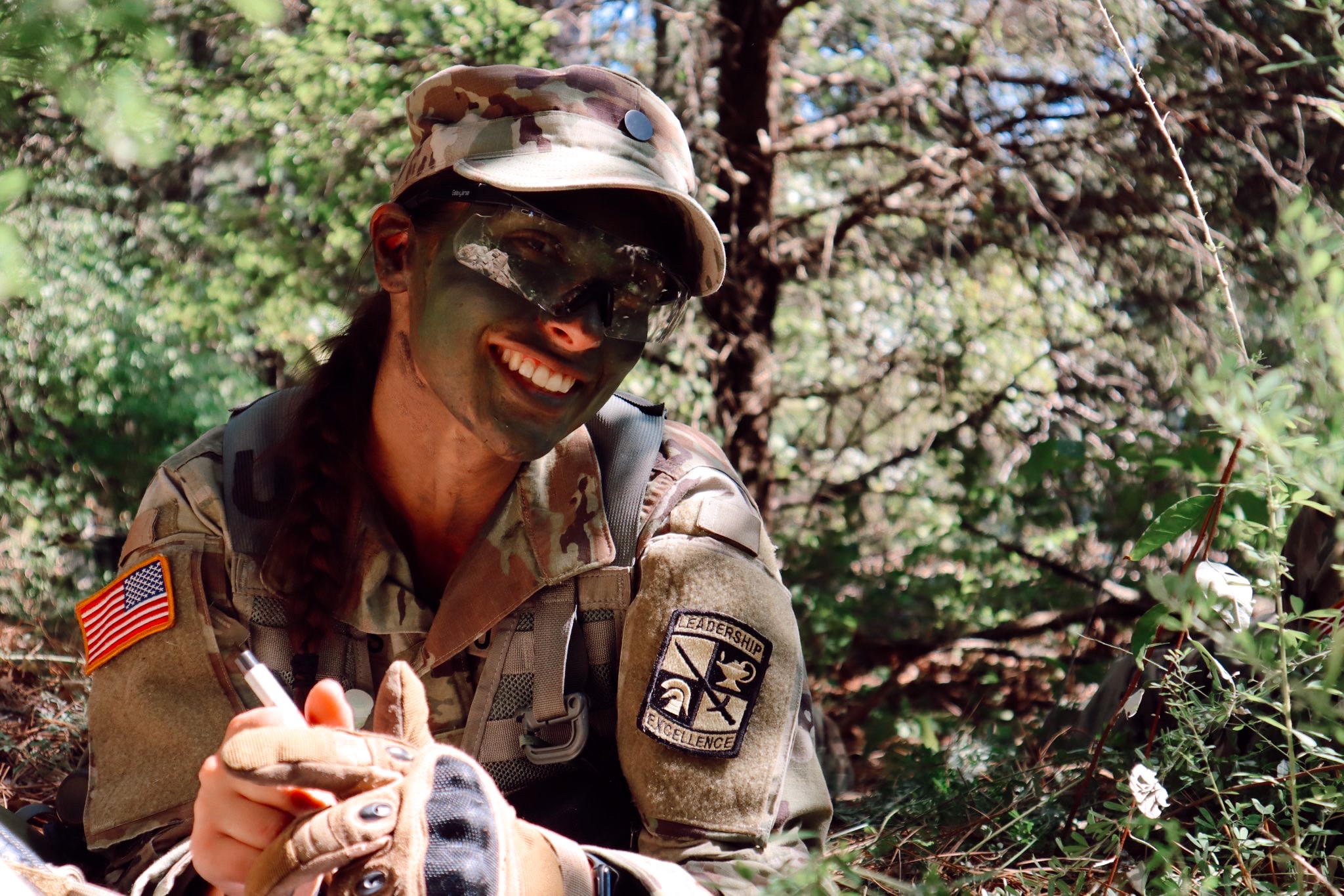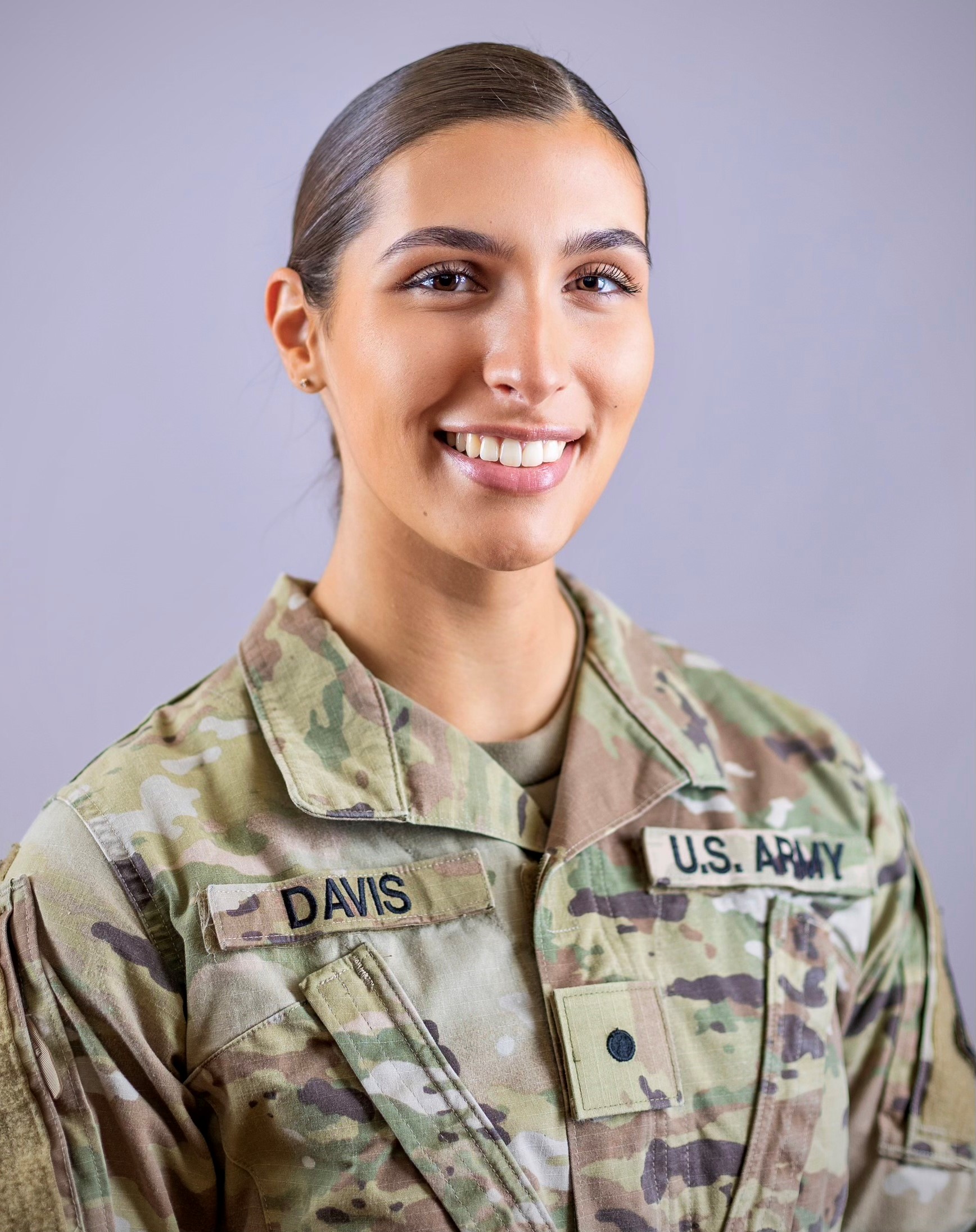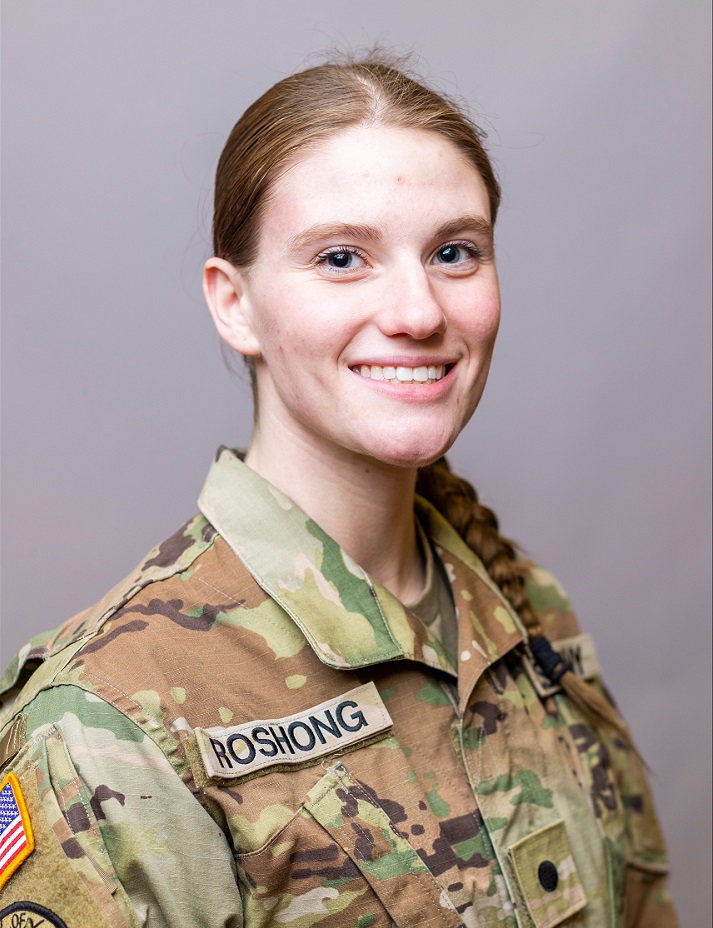UK College of Agriculture, Food and Environment and ROTC empower women for a stronger future
UK College of Agriculture, Food and Environment and ROTC empower women for a stronger future


Isabelle Davis doesn't mind falling in for her mandatory 5:50 a.m. Reserve Officers' Training Corps exercises three times a week. She's been through mental and physical rigor before. After all, the female cadet has spent her entire life working in agriculture.
“A lot of the things that I learned about agriculture relates to ROTC,” said Davis, an equine science junior specializing in pre-veterinary medicine in the College of Agriculture, Food and Environment. Davis currently also serves with the Kentucky National Guard. “Many agricultural classes I've taken teach farm and animal management, caring for equine facilities and just being the person in charge. I feel like those communications, management and awareness very much mirror what I learned in ROTC.”

The UK ROTC program prepares college students for military careers, and had previously, like agriculture, been male-dominated. However, more and more women have been breaking barriers and proving their effectiveness in both areas, with the number of female ROTC cadets and the number of women involved in agriculture steadily increasing. A 2019 U.S. Department of Agriculture study showed more than half of all farming operations had at least one woman acting as a principal operator or decision-maker.
“The freshmen ROTC class has a lot more females than there were in past years,” said Hayden Roshong, a freshman animal and food sciences major who plans on going to the Army’s Veterinarian Corps after graduation, and who also currently serves in the Kentucky National Guard. “I think as a woman, it is important to show that there has been growth in society involving women. By bringing in more women there are greater opportunities for improvement within fields because more people of different backgrounds can be involved.”

Davis observed that many men she knows in agricultural fields grew up around the industry, but believes women are taking steps to educate themselves thanks in large part to a set of skills that overlaps with her ROTC training – critical thinking, problem solving, leadership, teamwork and discipline.
Today, women are the backbone of agricultural production in many parts of the world. The Food and Agriculture Organization of the United Nations estimates they produce up to 80% of the food in developing countries and are responsible for half of the world's food production, playing a critical role in ensuring food security for millions of people.
“I believe women bring something to both agriculture and ROTC,” Davis said. “Within agriculture, we are beginning to get into a place where women can take on more responsibility. I think women are now excelling in both fields, and it's amazing seeing women take charge in agricultural leadership. Not only take charge, but excel, because I think that we're very passionate about what we do in agriculture.”
Students